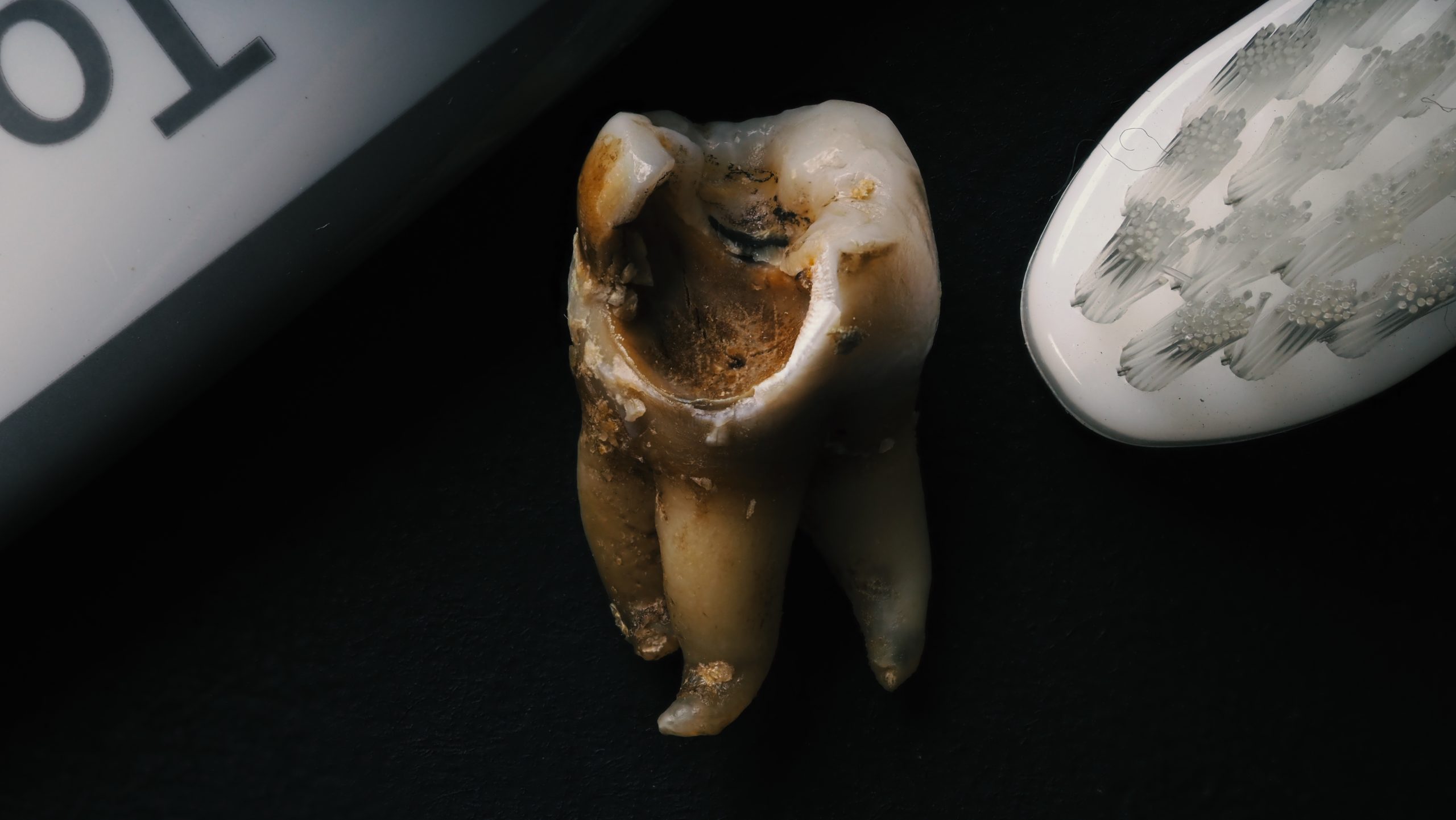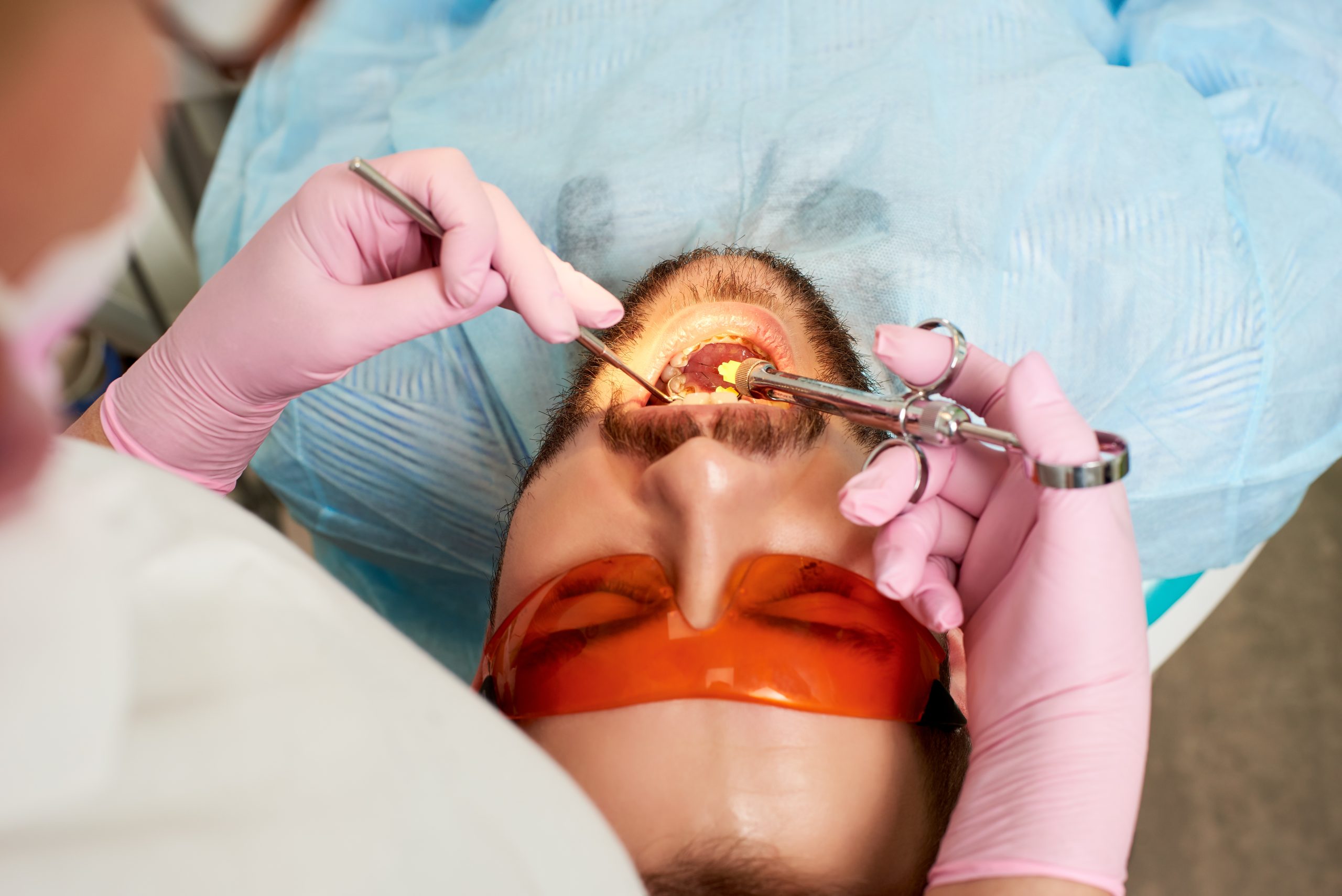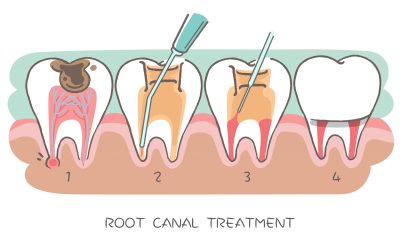Overview
A root canal is a common dental procedure used to treat infected or severely damaged teeth, often saving them from extraction. While the treatment is typically successful, complications can sometimes occur, including root canal infections. These infections may develop shortly after the procedure or even months later, making it important to recognize the common signs early. In this blog, we’ll explore everything you should know about root canal infections, including what causes them, how to spot the warning signs, and what treatment options are available.
What is a Root Canal?
A root canal can be defined as a dental procedure done to remove the infected/inflamed pulp (soft tissue inside an infected or damaged tooth). The procedure also involves cleaning and disinfecting the area (root canal) before filling it with filling material and sealing it. [1]This dental procedure is done to eliminate the infection and stop further damage. However, the procedure isn’t always successful for several reasons.
Who Needs a Root Canal?
You need root canal treatment if bacteria has invaded the dental pulp inside your tooth/teeth and caused inflammation. This usually happens for individuals with deep cavities/tooth decay or a damaged/decayed tooth or fractured tooth root.

Root Canal: Symptoms of Infection
While rare, it is possible to develop an infection after a root canal procedure. The bacterial infection is accompanied by several symptoms the most notable being [2];
- Pain and swollen tissue: If you notice some pain and swelling in the treatment area, there is a high chance that you are dealing with an infection. While pain and other post-operative symptoms (like sensitivity) are normal in most cases after a root canal, persistent pain accompanied by swelling should be investigated. You shouldn’t assume that you have a tooth infection. Instead, go back to your dentist for a thorough examination and confirmation.
- Pus, warmth and/or unusual bad taste: Other common symptoms of a tooth root canal infection include noticing pus. The treatment area may also feel warm. What’s more, you may start having an unusual taste in your mouth. This symptom is usually accompanied by a bad breath and a loose tooth. Root canal infections can also cause tooth discoloration.
Gum Infection After Root Canal
Like other infections, root canal infections can spread to the surrounding tissue in the mouth, other teeth, or on the gums and jawbone, causing bone tissue infection. The infected tissue can also infect other tissue in the cheeks and face. While rare, this is a possibility.
Most importantly, since such infections can’t go away on their own, you need to seek medical attention immediately. Taking action quickly helps to stop the infection from spreading.
What Causes Root Canals to Fail?
While rare, a root canal can result in an infection because of several reasons the most notable being:
- Procedural complications (failure to remove all infection): Root canal is a complicated procedure. The tooth has many canals that are usually difficult to find and treat. When dentists do root canal procedures, they do their best to locate all canals and treat them by removing the infection and sterilizing them. In most cases, dentists are successful in every step of the procedure and patients can enjoy their tooth with ease for life. However, in some instances, there may be an infection left after the procedure. The infection that isn’t found and removed during a procedure usually causes a recurrence. This can happen months (sometimes years) after treatment.
- Procedural risks: Like all treatments (even when done by specialists), there is usually a small chance of failure. Endodontists are dental specialists trained and specialized in offering root canal treatment. However, when endodontists do root canals, there is usually a risk of infection which varies based on many factors from experience to unforeseen complications.
Keep in mind that before you see root canal specialists (endodontists), you need a referral. You can contact us first to assess your situation and establish if you need a root canal. We can then refer you to the best endodontist to see.
What Happens When a Root Canal Is Infected?
You must redo the root canal procedure to make it better or extract the infected tooth entirely. The action to take should be determined by your dentist after a thorough exam.
How to Treat Root Canal Infection?
Root canal infections are usually treated in steps.
Step 1: Antibiotics and Pain Medication
You will most likely get prescription antibiotics to start with. The antibiotics are supposed to deal with the underlying infection and offer temporary relief. However, they don’t eliminate the infection completely, which is why it will come back if nothing else is done. Pain medication may also be prescribed for use when needed.
Step 2: Root Canal Retreatment or Tooth Extraction
As mentioned, you will need to be re-treated if you get an infection after a root canal. If the infection or tooth damage is too severe, tooth extraction may be the only option. In such a case, the tooth will be removed and/or other treatments may be done, like the installation of a dental bridge, or dental implant to replace the damaged/infected natural tooth.
You should take certain measures afterwards. Consider avoiding sugary foods, chewy foods, acidic foods or foods with extreme temperatures (too hot or cold temperatures) to speed up healing and avoid recurrence of deep decay or infection on other teeth. It also helps to maintain a balanced diet and go for regular checkups and dental cleanings.
Final Thoughts
Root canal infections are rare but not unthinkable. Pay attention to warning signs like tooth pain after treatment, swelling and pus to ascertain if you have an infection. However, you still need to see your dentist.
If in doubt and pain right after treatment, you should go to the same dentist and have your treatment area checked.
The Little Green Building is a dental clinic in Toronto where you can get the proper diagnosis and referrals to the appropriate specialist, if needed.
Book an appointment now with Dr. Michael Paltsev. You can also call: 416-769-8135 or email: littlegreenbuilding@gmail.com. Visit us in person Monday to Saturday near Bloor West (Google Maps).
You can ask us about root canal infections, dental insurance policies for root canal, proper care after root canal, types of root canal filling materials, concerns about root canal and more!
References
[1] Cleveland Clinic: https://my.clevelandclinic.org/health/treatments/21759-root-canal
[2] Healthline: https://www.healthline.com/health/root-canal-infection#about





